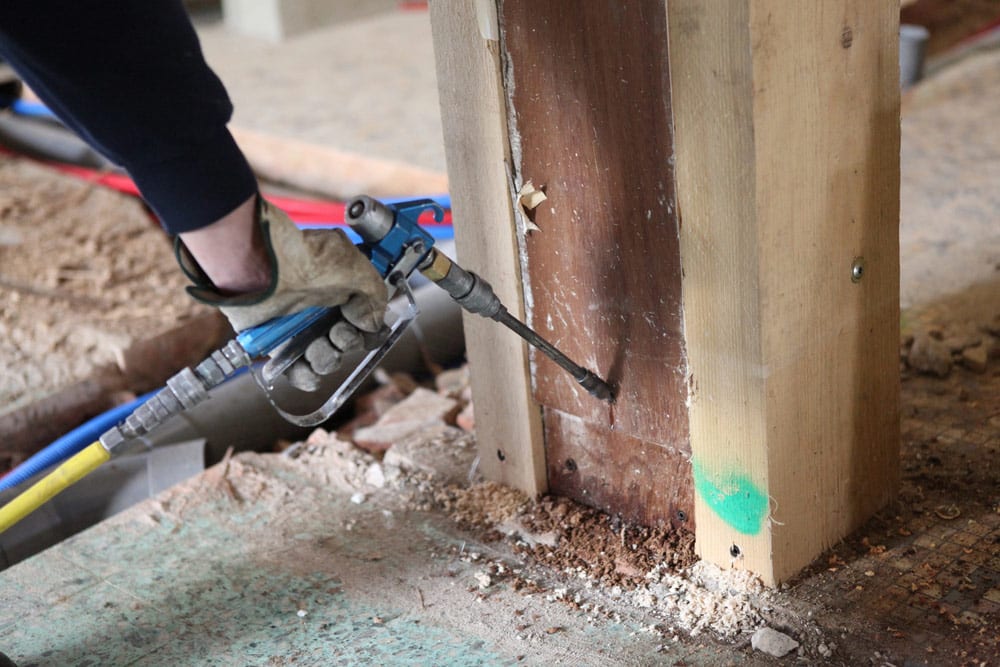Leading Ant Control Services: Reliable Solutions for Your Home or Organization
Ecological Influence of Insect Control: Balancing Effectiveness With Sustainability
The ecological influence of parasite control is a vital issue that requires a delicate equilibrium in between achieving efficiency in making certain and taking care of parasites sustainability of our ecological communities. As we aim to safeguard our plants, homes, and health and wellness from the risks posed by parasites, the methods we use can unintentionally damage the setting. From making use of hazardous chemicals that permeate into our dirt and water to the unintentional repercussions on non-target varieties, the consequences of standard insect control methods are far-ranging. There are emerging methods that supply hope for a much more lasting approach to pest administration. These remedies not just purpose to resolve the immediate insect troubles but also take into consideration the lasting health and wellness of our earth.
Damaging Chemicals in Bug Control
The use of hazardous chemicals in parasite control presents substantial ecological and health threats that require careful factor to consider and reduction approaches. Insecticides, pesticides, and herbicides are generally made use of to get rid of bugs, yet their extensive application can cause unintended consequences. These chemicals can infect soil, water resources, and the air, influencing not only the targeted pests yet likewise useful pests, wildlife, and people.

To deal with these risks, integrated pest management (IPM) techniques are being advertised as an extra lasting choice. IPM includes a combination of methods such as biological control, environment adjustment, and the targeted usage of chemicals as a last resource (ant control conover nc). By taking on an all natural approach to pest control, we can minimize the ecological and wellness effects related to damaging chemicals while efficiently taking care of pest populations
Effect On Non-Target Species
Considering the unexpected repercussions of pest control approaches, the influence on non-target varieties is a critical element that requires thorough examination. While parasite control measures aim to target details bugs, various other organisms in the community may be accidentally affected. Non-target types, including advantageous pests, birds, mammals, and even plants, can endure indirect or direct damage from chemical applications or biological control techniques.
Pesticides developed to deal with a certain bug parasite might damage pollinators like or all-natural killers such as ladybugs. Organic control representatives, if not species-specific, can present threats to unplanned targets, interrupting the environmental equilibrium.
To alleviate the influence on non-target types, integrated parasite management (IPM) methods that stress an alternative approach to pest control are recommended. These methods prioritize using eco-friendly practices, lessening harm to advantageous organisms while successfully managing pest populations. Performing detailed threat assessments and keeping an eye on the results of bug control initiatives are important steps in securing non-target varieties and promoting total ecological community health and wellness.
Soil and Water Contamination
Unplanned ecological repercussions of insect control approaches expand beyond influencing non-target types, with considerable effects for soil and water contamination. Pesticides, herbicides, and chemical fertilizers made use of in pest control can leach into the dirt and infect groundwater, posing a threat to both earthbound and water communities. Soil contamination can interrupt the balance of bacteria essential for vitamins and mineral biking and plant development, resulting in lowered dirt fertility and performance. Furthermore, these chemicals can continue the environment for prolonged durations, building up in the dirt and potentially getting in the food web.
Water contamination is another vital concern related to parasite control methods. Drainage from agricultural fields treated with pesticides can carry these chemicals right into neighboring water bodies, influencing marine organisms and water top quality. Contaminants in water resources can have far-ranging effects, affecting not only marine life however also human health with the intake of contaminated water or marine microorganisms. To minimize soil and water contamination from parasite control activities, incorporated insect monitoring techniques that prioritize sustainability and reduce chemical inputs are important.
Air Contamination From Chemical Usage
Direct exposure to air-borne chemicals throughout farming applications poses a substantial concern for air pollution control procedures. Additionally, pesticide drift, where pesticides are brought by the wind to unintended areas, can lead to the contamination of neighboring communities and water bodies.

Strategies for Sustainable Bug Control
In the realm of agricultural practices, implementing lasting bug control approaches is paramount for keeping ecological balance and protecting plant returns. Sustainable parasite control emphasizes the use of eco pleasant techniques to handle insect populaces successfully while lessening damage to non-target organisms and ecosystems. Integrated Pest Monitoring (IPM) is a widely adopted strategy that integrates organic, social, physical, and chemical control methods to attain lasting pest management services.
Plant turning and diversity are additionally efficient strategies to interrupt pest life cycles and create much less beneficial problems for pests to thrive. Eventually, by integrating these lasting bug control methods, farmers can achieve an equilibrium in between pest management performance and ecological stewardship.
Verdict
Finally, the environmental impact of insect control methods have to be thoroughly taken into consideration to stabilize effectiveness with sustainability. Damaging chemicals made use of in parasite control can cause soil and water contamination, air contamination, and harm non-target species - termite control. It is vital to execute sustainable bug control approaches to lessen these adverse effects on the atmosphere and advertise a blog much healthier ecological community for future generations
By taking on an alternative approach to pest control, we can lessen the ecological and health and wellness effects connected with hazardous chemicals while successfully taking care of pest populations.

To minimize the air pollution created by chemical usage, it is necessary to adopt incorporated pest management approaches that prioritize the usage of non-chemical parasite control methods, such as crop turning, natural predators, and immune plant ranges. Lasting parasite control emphasizes the use of environmentally pleasant techniques to take care of insect populations effectively while lessening harm to non-target organisms and environments. Integrated Bug Monitoring (IPM) is a widely embraced strategy that incorporates biological, cultural, physical, and chemical control methods to accomplish long-term pest monitoring solutions.